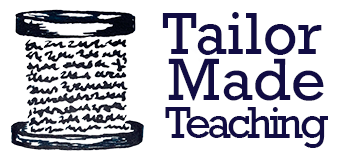Blog for teachers

Why Teachers Need to Remain Students
This year, I have participated in several Continuing Professional…

English Spelling
English spelling is notoriously complex because it is influenced…

EAP: Hedging
What is hedging?
Elicit: Security / Hiding
Point out: Very…

EAP: Overcoming Common Issues with Formatting References and Citations
Formatting references and citations correctly is a crucial skill…

Padlet
If you do any online teaching, you probably already know Padlet…

Study Strategies
Developing “learner autonomy” has been a crucial element…

Homestay Films
We usually have at least one film night during a homestay course.…

Homestay Games
When you're hosting homestay students, it can be difficult to…

EAP Tutorials
One of the topics I’m really interested in at the moment is…

Effective Use of Marking Symbols: A Two-Stage Solution
As ESL/EFL teachers, providing constructive feedback is crucial…

CPD: ChatGPT in the Language Classroom and AI Tools for the English Language Classroom
“AI won’t take your job. It’s somebody using AI that…

CPD: Trinity Cert PT in EAP
The Trinity Cert PT
I’d never heard of a Cert PT before finding…

Teaching Idioms
One of my favourite games to play with students of intermediate…

CPD British Council Teaching English Courses
Courses
These are short self-study courses, made up of three…

Root Words and Meaning A – Z
List of blog posts on root words from Latin and Greek and their…
